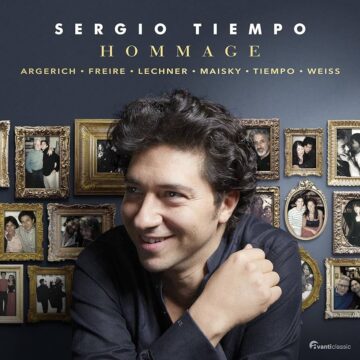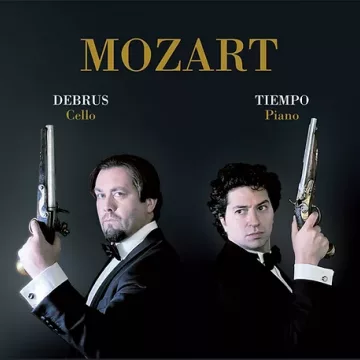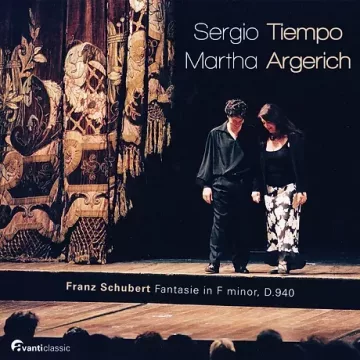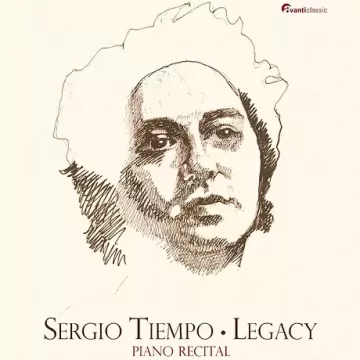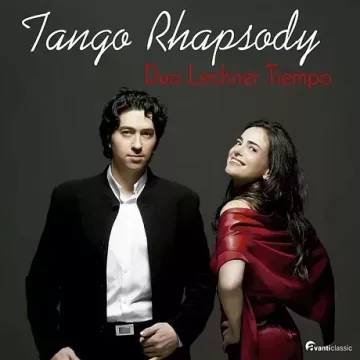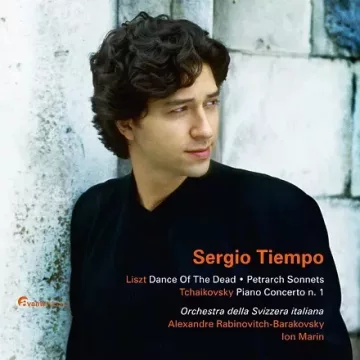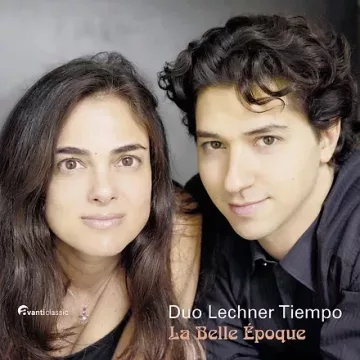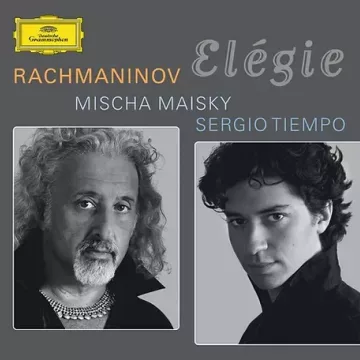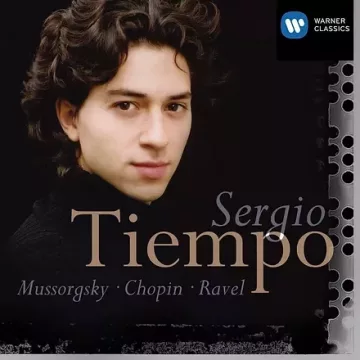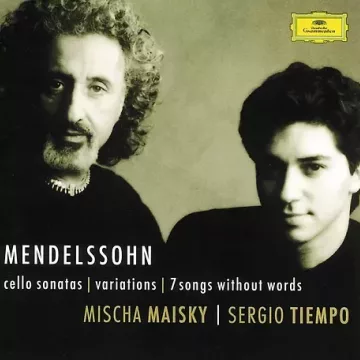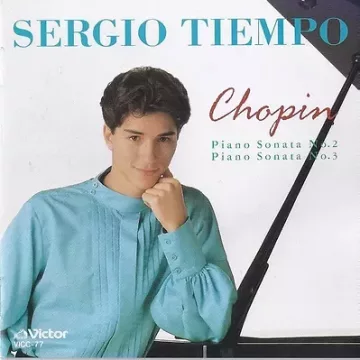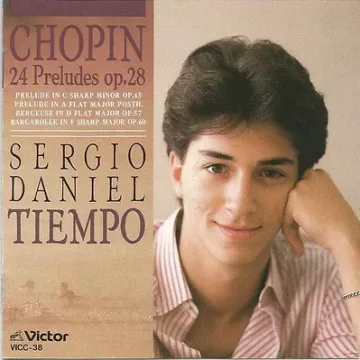In the last five years alone, pianist Sergio Tiempo has performed with orchestras including the New York Philharmonic, Boston Symphony, LA Philharmonic, Philadelphia Orchestra, Orchestre Symphonique de Montréal, Orquestra Sinfônica do Estado de São Paulo and Berliner Philharmoniker. He has played with condutors including Claudio Abbado, Marin Alsop, Christoph Eschenbach, Thierry Fischer, Emmanuel Krivine, Yannick Nézet-Séguin, Rafael Payare, Alexander Prior, Leonard Slatkin, Michael Tilson Thomas and, maybe most of all, with his fellow countryman and friend Gustavo Dudamel. Particularly well known for his performances of Ginastera’s Piano Concerto No.1, Tiempo has also premiered Esteban Benzecry’s new piano concerto Universos Infinitos, and regularly plays Beethoven, Chopin, Grieg, Prokofiev, Rachmaninov, and Tchaikovsky.
As a recitalist, he has appeared at Konzerthaus Wien, Wigmore Hall, Berliner Philharmonie, Elbphilharmonie Hamburg and Edinburgh International Festival, at Klavier Festival Ruhr, the George Enescu Festival, the Warsaw and Brussels Chopin Festivals, Dias Da Música, and on recital tours across China, Korea, Italy, and North and South America.
Born in Caracas, Venezuela, Tiempo first studied with his mother, Lyl Tiempo. He pays tribute to her and some of his closest musical mentors in his new album ‘Hommage’ (released in September 2023). Among them are his sister and regular recital partner Karin Lechner, Martha Argerich Nelson Freire, Alan Weiss and Mischa Maisky. He made his professional debut aged 14 at Amsterdam’s Concertgebouw and later went on to study at Fondazione per il Pianoforte in Como, Italy, where he worked with Dimitri Bashkirov, Fou Tsong, Murray Perahia and Dietrich Fischer-Dieskau.
This biography is for information only and should not be reproduced.
BBC National Orchestra of Wales: Ravel’s Piano Concerto in G Major with Giancarlo Guerrero
Brangwyn Hall, Swansea
Sergio Tiempo was the soloist in Ravel’s Piano Concerto in G, a work many approach with a refined playfulness. Not Tiempo. He brought a nonchalantly elegant languidness to the quiet passages, but such dynamic bravura to the jazz elements as might have made the composer smile. In his encore, Chopin’s Nocturne No 4 in F, Op 15, it was the understated beauty of the slow cantilena contrasting with the fire of the central section that held the audience in thrall.
Rian Evans, The Guardian ★★★★
Hommage
Avanti Classic, September 2023
It is not every pianist who can pick up the phone and ask Martha Argerich, Mischa Maisky or Nelson Freire to come and record some duets with them - and, moreover, know that they will do so without question. Easier to ask your mother or sister or an important teacher. But then Sergio Tiempo is no ordinary pianist and the six people who join him on this recording are all family - both literally and metaphorically, especially Argerich and the late, much-missed Freire, who have known him (and nurtured him musically) since he was in his cradle.
'Hommage' is a triumph on at least two levels: the performances themselves, and the kind of mixed-genre programme I wish more musicians would offer us, here for cello and piano, piano duet and two pianos.
The disc opens with Tiempo's rocket launch into Chopin's Introduction and Polonaise brillante, in which he is joined by Maisky. It's a canny opening choice, intense, showy and a little mischievous, the elder statesman holding a magisterial line above the exuberant playfulness of his protege. Still smiling, I played through the whole thing again immediately...
...Then it is the turn of Tiempo's gifted sister, Karin Lechner, in Tchaikovsky's Serenade for strings, the composer's own piano-four-hands arrangement but played here on two pianos, presumably to lend a more orchestral bloom to proceedings. It is a triumph, both because of the pianists' innate understanding of the other in terms of ensemble, phrasing, voicing, and the rest of it, and also because it thoroughly convinces you that the work was originally conceived for two pianos. Finally, Tiempo and his 'Aunt Martha' in Schubert's Fantasy, two musicians of different generations at the top of their game, quietly, unassumingly revelling in what they do best. I hope you enjoy it all as much as I did.
Jeremy Nicholas, Gramophone Magazine
Berlin Philharmonic: Ginastera Piano Concerto No. 1 with Gustavo Dudamel
Philharmonie Berlin, May 2023
With pianist Sergio Tiempo at the centre, a full-blooded virtuoso from Venezuela, compatriot and friend of Dudamel... He has everything Ginastera's music needs: the percussive touch, the frenzied precision, the passionate dance, and when necessary, also a seductive pianissimo
Felix Stephan, Berliner Morgenpost
As centrepiece, music with greater staying power, from Argentina, composed in 1961, Alberto Ginastera’s four-movement First Piano Concerto, also requiring a large orchestra, and giving the pianist reams of notes to tackle, beginning thunderously to introduce a wide-ranging first movement, from enchanted to hard-hitting, quite modernist, then a ‘Scherzo allucinante’ – fast, mysterious, mostly pianissimo – answered by a dark slow movement, alternating troubled intimate lyricism with impassioned outbursts, followed by a ‘Toccata concertata’ that pulsates all the way to the exciting end, as orchestral as it is pianistic. Sergio Tiempo gave a brilliant performance, from memory, with the Berliners and Dudamel every bit as vivid and rhythmically alert as the pianist, they stuck together throughout
Colins Column
QSO Grieg Piano Concerto
Brisbane, March 2023
Sergio Tiempo’s enthusiasm and verve surged through the auditorium gathering audience, guest conductor Johannes Fritzsch... Sergio had it all: moppish hair to swish out of his eyes, elegant hands to caress the keys and a vitality served with a virtuosity that lured the audience to burst into spontaneous applause at the piece’s crescendo. It was one of those concerts when music and momentum merge to create true magic.
Toni Johnson-Woods, Westend Magazine
QSO Studio Recital
Brisbane, March 2023
a touching and personal recital that also allowed Tiempo to showcase his remarkable virtuosity across a wide-ranging recital of favourites and lesser-known works...
The highlight of this first half, though, was the titanic Sonata No. 3 in B minor. Here, Tiempo shaped the first movement’s mercurial moods easily, but the beating heart of this work is the Largothird movement, where it was clear that Tiempo had Freire in mind with the gentleness of the melody floating through this movement.,,
Villa-Lobos wrote a colossal amount of music and perhaps doesn’t always fire on all cylinders, but on those occasions when he does, the results speak for themselves. These character pieces were both rhythmically fascinating and truly splendidly virtuosic – real show-stoppers. Alberto Ginastera’s Malambo continued in a similar vein but with even more satisfyingly crunchy harmonies.
Finally, the encore was a Chopin prelude that Tiempo had earlier teased – the Prelude No. 4from Op. 28. Richly chromatic, it provided a reflective end for this impressive virtuoso recital.
Paul Ballam-Cross, Limelight Magazine
Royal Liverpool Philharmonic Orchestra: Rachmaninoff 3 with Domingo Hindoyan
Philharmonic Hall Liverpool, March 2023
From the first flourish there was no disappointment with Tiempo’s virtuosity, which was abundantly clear. His articulation was crisp and clear, with meticulously executed staccato playing...Tiempo was a master at extracting the tone of the Steinway’s upper register, cutting through the orchestral textures effortlessly...Tiempo showcased his skill especially by delicately balancing his hands to perfection, demonstrating staggeringly impressive fingerwork with rapid repeats of notes and crystal clear trills...There is no doubt that Tiempo has great stage presence and skill, with charisma and charm. The audience were incredibly focused and it was difficult to take one’s eyes off him.
Leighton Jones, Bachtrack
It’s never good news when you find yourself without a soloist days before a practically sold-out concert...What started as an organisational headache thus morphed into an unexpected treat for a Thursday night audience at Hope Street as the Venezuelan-born Argentine virtuoso delivered a dazzling interpretation of Rachmaninov’s fiendish Third Piano Concerto...
Power, phrasing, pace…and perspiration (literally) combined in an effervescent performance which made the three-quarters-of-an-hour running time feel like 10 minutes. Tiempo fugit as it were.
Along the way there was a flamboyant cadenza – punctuated by the sweetness of Cormac Henry’s flute, an intermezzo which brought both romantic reflectiveness and spiky scherzando playing, and a frankly heroic finale all round.
But a concerto is a partnership. And while there was a perhaps fleeting moment at the start of the first movement where the Phil could have held back a touch to allow the piano to really sing, under Domingo Hindoyan’s nuanced direction Rachmaninov’s complex orchestral accompaniment was otherwise flawless, from the lovely swelling ebb and flow of the first movement themes to the expressive intermezzo (introduced by Jonathan Small’s beatific oboe) to the work's cinematic climax.
Arts City Liverpool *****
Stunningly absorbing, this performance of Rachmaninov’s Piano Concerto No.3 conducted by Domingo Hindoyan is unmissable. Considered as an archetype showpiece, the concerto is renowned for being a challenge and demands technical prowess – pianist Sergio Tiempo rises to this and more, demonstrating what a maestro he is...
Sergio Tiempo was not originally billed to perform tonight, making his playing all the more impressive. Throughout most of his playing, he subtly smiles and loses himself in the intensity of playing – the audience, seeing the difficulty in the task, smiles with him.
Delightful. The relationship between Hindoyan, the musicians and Tiempo is a joy to watch. From the expressions on faces and frequent glances to Hindoyan, this is an ensemble that love the music they’re playing...
Although Tiempo’s virtuosity provides the glue to the concerto, there is a strong sense of this being a communal performance.
As the interval approached, the concerto edged towards a blistering climax with the orchestra bobbing in unison and the audience keen to show appreciation. Everyone was on their feet applauding as the final note sounded.
Ezzy LaBelle, NorthWest End UK *****
Los Angeles Philharmonic: Prokofiev 1 with Ludovic Morlot
Walt Disney Concert Hall, March 2022
[...] pianist Sergio Tiempo more than fulfilled his obligations. This was the first time I had heard Maestro Tiempo play: he is unquestionably one of the best contemporary pianists, and I look forward to future performances.
Rhythm is rightly cited as one of music’s predominant elements, and when it came to driving this particular concerto, Tiempo showed his pianistic and rhythmic mastery in each of the three movements. From downbeat to final chord, the pulse was strong and steady, not overly driven, and the pure musicality of the concerto proved to be a primary basis and purpose. Tiempo’s musical strengths were evident everywhere, but the delicacy and taste that accompanied the middle movement was an even more direct acknowledgement of the work’s beauty. That Tiempo’s technical ability is superseded only by his divine taste was demonstrated in the encore: Liszt’s ‘Consolation No.3’, which Tiempo dedicated to his father who died on 28 February. The contrast between his awesome power in the Prokofiev Piano Concerto and the sensitivity shown in the Liszt was heart-breaking. There wasn’t a dry eye in the house, including mine.
Douglas Dutton, Seen and Heard International
Philadelphia Orchestra: Chopin Piano Concerto No. 1
Philadelphia, March 2022
Chopin’s Piano Concerto No. 1 offered a soloist of considerable artistic individualism. Sergio Tiempo had such a big sound you might have thought his piano was amplified. But he also had dimensions. His suddenly explosive outburst in the second movement wasn’t a gratuitous one, but, rather, an expressively beautiful one. He could be brawny or flowery, and the orchestra and Yannick Nézet-Séguin expertly hewed to his contours and flashes.
Peter Dobrin, Philadelphia Enquirer
New York Philharmonic: Esteban Benzecry Piano Concerto 'Universos Infinitos'
David Geffen Hall, Jan 2020
Pounding rhythms, cascading chords, spiralling swirls of fast notes... a dizzying perpetual-motion toccata. Mr Tiempo gave a scintillating and virtuosic performance.
Anthony Tommasini, New York Times
The evening’s most rewarding item was the New York premiere of Universos infinitos, a piano concerto by Esteban Benzecry...Pianist Sergio Tiempo, Benzecry’s fellow Argentine, gave an inspired reading, showing in this first movement complete comfort with the virtuosic demands of the part, but also finding moments to pull back and draw whispering phrases out of the instrument... [In “Ñuque Cuyen] an airy texture accompanies the flowing lines of the solo part, which Tiempo played with a breathing freedom, delicately and thoughtfully interweaving his voices... [the] thrilling finale calls to mind the close of Rachmaninoff’s third piano concerto, ending in a flash of light and a blazing chordal progression in the solo part.
Eric C. Simpson, New York Classical Review
This is an absolutely outstanding composition, undoubtedly the most engaging and satisfying new piano concerto I have heard from a living composer. Tiempo played it with absolute commitment and an extraordinary range of touch, sometimes creating hallucinatory dreamscapes of notes, sometimes hitting an individual key so hard you could hear the note distorting slightly, and integrating percussive effects like double elbow clusters and slaps on the bass strings without seeming affected.
David Wolfson, Bachtrack ****
The mostly restless piece is a bravura challenge for the pianist...The soloist, the young and fearless Sergio Tiempo, dispatched the virtuosic demands of the part with remarkable ease. In the mystical, dream-like slow movement, ‘Ñuque Cuyen’ (Mother Moon), he played the flowing solo lines with great delicacy and tenderness. In the whirlwind-paced closing toccata, ‘Willka Kuti’’ (Return of the Sun), his furiously energetic playing most effectively depicted the dance rhythms of the Ayamará and Guaraní ethnic groups gathering to celebrate the start of a new agricultural cycle.
Susan Stempleski, Classical Source
Frankfurter Museumsorchester: Rachmaninov 'Rhapsody on a Theme by Paganini'
Alte Oper / November 2019
The Venezuelan pianist Sergio Tiempo played with an open, virtuosic, and agitated driving force, without missing even the smallest of notes, setting itself apart from the more introverted interpretations of the same work.
Axel Zibulski, Frankfurter Allgemeine
The phenomenal pianist Sergio Tiempo, from Venezuela, formed a dream team with conductor Alexander Prior. The two made all aspects of the work their own, with a swirling, percussive but also subtle shape. At the same time, it was completely unforced, sparkling and crystalline. Rachmaninov's ideas were exposed , broken down with with rapidly changing perspectives. Tiempo and Prior - remember these names.
Bernhard Uske, Frankfurter Rundschau
Sergio Tiempo has without a doubt immensely powerful reserves of showmanship, which seem to me to favour soft lyricism and the elegiac main features of the work...with a highly virtuosic colour palette, Tiempo impressed especially in Variation No. 6 through his organic and stylish tempo changes.
It was fascinating to see the intensity which with the artist manoevred from dramatic climaxes to brilliant pathos, and with sparkling lustre and an elastic cantabile in Variations 11 and 12 to name but a few, the spirited pianist seemed to play these as a nostalgic swansong, full of melancholy even in the less expressive passages, gave us emotional depths and lyrical elegies.
Gerhard Hoffmann, Online Merker
Sergio Tiempo’s Concerto Repertoire
| BACH | Concerto for Two Pianos in C minor, BWV 1062 |
|---|---|
| BEETHOVEN | No. 1 in C major, Op.15 |
| BENZECRY, ESTEBAN | Piano Concerto, "Universos Infinitos" |
| CHOPIN | No. 1 in E minor, Op.11 |
| GINASTERA | No.1, op.28 |
| GRIEG | Concerto in A minor, Op.16 |
| JUSID | Tango Rhapsody |
| LISZT | No. 1 in E-flat major, S.124 |
| MARTINŮ | Concerto for Two Pianos and Orchestra, H292 |
| MENDELSSOHN | Concerto for Two Pianos in A flat major, MWV O 6 |
| MOZART | No. 21 in C major, K. 467 |
| POULENC | Concerto for Two Pianos and Orchestra in D minor, FP 61 |
| RACHMANINOV | No. 2 in C minor, Op. 18 |
| RAVEL | Concerto in G major, M. 83 |
| SAINT-SAËNS | Le carnaval des animaux |
| SCHUMANN | Concerto in A minor, Op. 54 |
| TCHAIKOVSKY | No. 1 in B flat minor, Op. 23 |
These photos are available to be downloaded.
Right click on a desired image and select the "Save Link As" option.

